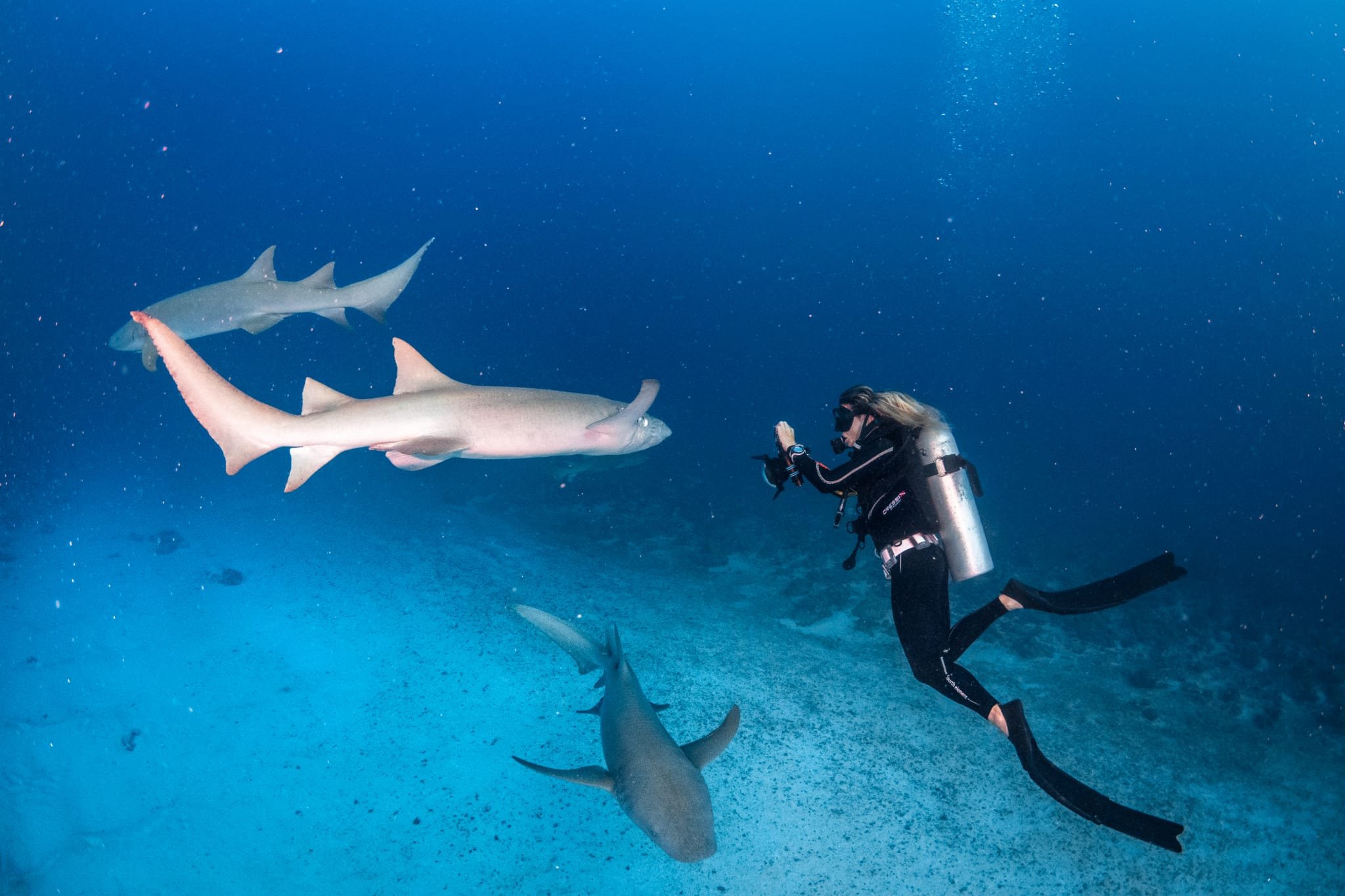
Scientific Research
“No blue, no green.”
- Dr Sylvia Earle, Marine Biologist
A voyaging scientist exploring the ocean
Fiercely passionate about human impacts on the ocean, Charlie's scientific work has taken her around the globe to research and document anthropogenic stressors such as plastic pollution and climate change, from the diverse reefs of Saudi Arabia, to the temperate waters of the South Pacific. In 2022 her first, first author publication was published in ASLO and helps fill the gap in our knowledge and understanding of where plastic goes once it enters the ocean.
Now living full-time at sea, Charlie dedicates her life afloat to documenting wildlife, conducting scientific research and creating impact films investigating human abuses on the ocean.
Her mission? To get below the surface of this lawless frontier and shine a light on its greatest challenges, untold stories and undiscovered mysteries.
Research Projects
Breathing Reefs: Carbon Exchange in Tropical Reef Ecosystems
MRes Project, Glasgow University
Designing and building her own reef mesocosm, Charlie investigated how changing reef composition as a consequence of climate change affects the air-sea surface flux of carbon, and its subsequent impact on global carbon budgets.
Herbivorous fish distribution and its impact on coral recruitment
Centre Research Assistant, Reef Ecology Lab, KAUST
Supporting Dr. Matt Tietbohl with his postdoctoral research, Charlie conducted over 50 scientific dives where she undertook extensive coral and fish surveys to help map functional group distribution through space and time to better understand how these fish impact coral recruitment in the Red Sea, and how this compares to other locations around the world. In addition she helped process collected data with CPCe software.
What is the ultimate sink of plastic pollution in the ocean?
Lead Researcher, KAUST
Through an extensive meta data analysis, Charlie and her co-authors collated all the published data on plastics in marine sediments worldwide and successfully identified the ultimate sink of this pollutant in the ocean.
Assessing sharks and rays in shallow coastal habitats using BRUVS & tag release techniques
Centre Research Assistant, Reef Ecology Lab, KAUST
Supporting Masters student, Ashlie McIvor, Charlie helped capture and tag blue-spotted rays and conduct baited remote underwater video surveys (BRUVS) to quantify the abundance and diversity of sharks and rays in coastal habitats in the Saudi Arabian central Red Sea.
Floating plastic pollution in Indonesian coral reef habitats
Principal Scientist, Elysium Expedition
Joining Nat Geo photographers and scientists as principal scientist on the Elysium Epic Expedition, Charlie conducted extensive manta trawl surveys in over coral reef habitats to explore the extent of pollution in this pristine environment.
Nesting site preference of marine turtles in the central Red Sea
Centre Research Assistant, Reef Ecology Lab, KAUST
Supporting Masters student, Kirsty Scott, Charlie helped conduct turtle nesting site surveys on remote uninhabited islands, collecting in-situ measurements and sand samples to analyse for grain size, moisture content and colour.
“Ocean sediments as the global sink for marine micro- and mesoplastics”
Charlie’s co-first author paper
Collaborate with Charlie
Now living full-time at sea, Charlie is currently in the process of designing and planning a number of scientific studies which will be completed as she voyages to some of the lesser visited regions of the ocean. Keen to lend her scientific skills to helping fellow scientists and organisations gather data, Charlie highly encourages anyone to reach out with their idea to explore ways to collaborate.


